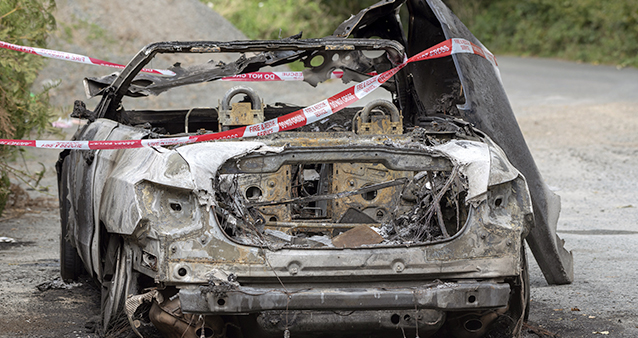Car Write-Offs: What You Need to Know

How, when, and why would your car be declared a write-off? The answer is more complicated than you'd think.
Being involved in a car accident is bad enough, but what if your car is damaged so badly that your insurance company decides that it's too expensive to repair? In that case, your vehicle will be written off... and that leads to a whole new world of stress.
Despite South Africa's roads being quieter over the ongoing lockdown, the number of local Google searches for the term "write-off" increased 250% during 2021. So it's definitely on the mind of your fellow motorists.
It's important for all car owners to understand when and why their vehicle would be declared a write-off, and how your insurer makes the final call on whether to fix your trusted chariot or send it off to the big scrapyard in the sky.
Herbert Schauer is a professional vehicle damage quantifier and loss adjuster who belongs to the Institute of Loss Adjusters and is a full member of the Association of Motor Assessors. He believes that "write-off" is a misnomer, arguing that vehicles should rather be referred to as "uneconomical to repair".
According to Schauer, a car is written off when the cost of fixing it is more than its insured value. "It is of utmost importance to identify the vehicle, not only by means of the vehicle identification number, but also noting optional extras that were fitted to the vehicle when it was purchased by the insured.
Optional extras have a tremendous impact on the value of the vehicle," he explains. "Once this has been verified, then the repair costs must be thoroughly analysed. Not only those items which are visible, but also any possibilities of an electrical or mechanical breakdown because of the accident must be taken into consideration."
How Write-offs Happen
Here's an example: Say your car hits a pothole, damaging the engine's sump. This would result in the spillage of engine lubricant, which means that the replacement of the visibly damaged items would have to be quoted for. That quote would also include the procedure to have the engine removed. Its components would need to be checked to ascertain whether they have received sufficient lubrication to prevent them from running dry and damaging the crankshaft and/or the bearings. If that is indeed the case, then the cost of repairing or replacing the engine would have to be taken into account.
And all because of that flippin' pothole!
"Once those costs have been established, only then can it be determined what the trade and resale value of the vehicle can be, as well as taking into consideration the optional extras fitted at the time of purchase," says Schauer. "If the pre-loss value has been established, the salvage value can be calculated to be between 20 to 30%, depending on the salvageable components that can be sold. This can determine the salvage value.
This amount can then be deducted from the pre-loss value, and the amount remaining will be compared to the total cost of repairs. This will determine whether the vehicle is economically repairable or not."
Another factor that would be taken into consideration is whether the accident's impact distorted the vehicle's structure. "If so, the chances of the vehicle ever being repaired properly so that it can compare to an undamaged car are rare," says Schauer.
Other Reasons For Write-offs
A road accident isn't the only way your car could be written off. "There are other factors, such as a fire or if a car is stolen and recovered. The cost of reinstating it to its original condition can also result in it being written off," Schauer explains.
Then you get the weird reasons. "I remember an insured put a large bottle of swimming pool acid in the boot of his car and, on returning home, the bottle fell over, drenching the back of the car, which started lifting the paintwork and corroding the rear of the vehicle," Schauer says, sounding like a person who has 'seen things'.
If your car is written off, your insurer will take ownership of the vehicle. "The insurance company becomes the owner of the car," says Schauer. "They pay the value of the 'undamaged car' to the insured and, in return, the insured must hand over the licence and registration documents to the insurers, who will then dispose of the car via a scrapyard and so on."
After reading that, you'll probably want to update your car insurance. Use our Car Insurance quote comparison tool to compare your options side-by-side.
This article is for informational purposes only and should not be construed as financial, legal or medical advice. Prices are correct at time of publication, but are subject to change.
Hippo Blog Categories

































